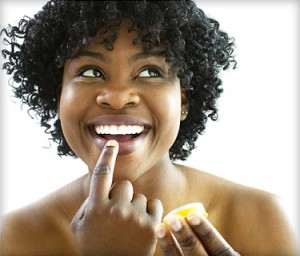
More evidence that low-calorie sweeteners are bad for your health
Studies show that artificial sweeteners can raise the risk of hypertension, metabolic syndrome, type 2 diabetes and heart disease, including stroke.

Your doctor might call it cheilitis, but to most of us it’s just plain old chapped lips.
This time of year sore, dry, peeling lips can be both painful and unsightly. All of us get chapped lips from time to time but there is plenty you can do to help keep your lips healthy.
Our lips are one of the most delicate and sensitive parts of our bodies. They are covered by a very thin stratum corneum (the outermost layer of the epidermis, which acts as a barrier to protect the layers beneath) and as such have poor barrier function. This means they are easily damaged and can easily absorb whatever you put on them.
It also means your lips have a low water holding capacity and are highly vulnerable to environmental challenges such as wind, exposure to extremes of cold and dry weather, which means the moment the weather turns they tend to lose water.
In fact, studies show that in healthy individuals the lips lose water almost 3 times as fast as the cheeks
There are different types of chapped lips too. If you sleep with your mouth open or when you have a cold and are breathing more with an open-mouth this can trigger even more water loss from the lips result in an inflammatory reaction of the skin (irritant cheilitis). Weather changes can also trigger angular cheilitis, which results in dryness and cracked skin in the corners of the mouth.
What causes chapped lips?
While environmental conditions are a big factor, weather isn’t the only thing that can chap your lips. Other factors include:
As with any break in the skin barrier chapping and cracking can let infection in. So it’s important to take action to help your lips heal. With a little proactive use of natural remedies you can keep the damage to the minimum.
Boosting moisture
Skin heals better when it’s kept moist. A good quality balm helps maintain the moisture balance of your lips while providing a barrier to the weather. Wear it at night to accelerate healing and make sure you reapply during the day to help keep your lips feeling comfortable.
It’s important to be choosy about what your balm is made from. Most commercial types are made from petroleum based wax and oil. This will certainly put a barrier on your skin but it can also irritate and perpetuate the problem. Ingredients like petrolatum or petroleum jelly, also adds absolutely none of the healing benefits you’d get from a plant based wax or oil. Many popular balms also contain artificial fragrances which can be irritating.
If you are going to be out in the sun for prolonged periods of time look for a product with SPF. Mineral based sunscreens such as zinc oxide are considered safer than chemical based ones. But SPF is, in many ways, less important that the quality of other ingredients in the mix.
Beautiful beeswax
Start with a good product made with beeswax.
Beeswax is a natural hydrating agent that increases skin moisture. This is why it is often found in healing salves, in formulations for dressing sore areas and burns, and in an ointment for treating chapped hands.
It also has an antiseptic quality and clinical evidence indicates that beeswax (along with honey and olive oil) may be useful for the treatment of skin disorders such as psoriasis and dermatitis, as well as skin infections caused by candida and staphylococcus.
Healing oils
Good emollients (ingredients with moisturising properties) from vegetable sources the choices are endless. Coconut oil, shea butter, mango butter, avocado oil, evening primrose oil, castor seed oil, soya, rosehip, almond, pumpkin seed, apricot or peach kernel oil and even good old olive oil are all good choices.
Look for them in any products you buy, and remember you can also use these oils, or simple Vitamin E oil, neat on your lips for a bit of quick intensive treatment.
Good choices from animal sources include lanolin, emu oil.
Beyond menthol
Many commercial lip balms contain ingredients like eucalyptus, menthol, and camphor. While these can have a cooling effect on damage skin, they can be a bit hard on your lips.
Look for products with healing calendula, rose or lavender. If your lips are really cracked a little tea tree, aloe vera can help heal and prevent infection taking hold. Orange oil is also good choice to fight off bacteria and aid healing.
While we don’t normally recommend impulse purchasing as a good lifestyle choice, lip balms may be an exception. Whatever product you choose, buy a few and keep them in handy places. Put one in your purse, in the car, near the bed, and at your desk so that they’re always within easy reach and remember to apply often.
Giving your lips a little support in this way will ensure they stay healthy and kissably soft!

Please subscribe me to your newsletter mailing list. I have read the
privacy statement